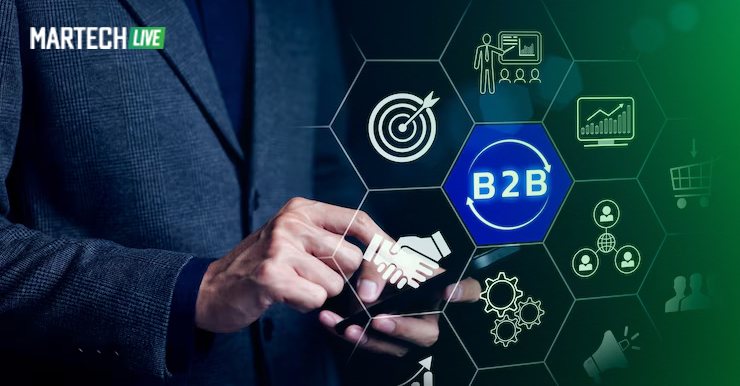B2B marketing isn’t what it used to be. The days of cold calls, bulk email blasts, and endless PowerPoint decks are fading fast. In their place, we’re seeing data-driven funnels, AI-powered outreach, and seamless automated workflows that are transforming the way businesses sell to other businesses.
As marketing technology (martech) continues to evolve, the entire B2B marketing ecosystem is undergoing a fundamental shift. Today, success doesn’t just depend on generating leads—it hinges on how well you qualify, nurture, and convert them using precision tools and personalized strategies and what modern marketers must do to stay competitive.
What Makes B2B Marketing Unique
B2B marketing operates under a different set of rules than B2C. Unlike consumer buyers who may make spontaneous purchases, B2B buyers follow a more methodical, rational process. Buying decisions are typically made by committees, influenced by data, and require a strong ROI justification.
Here’s what sets B2B marketing apart:
- Longer sales cycles: Deals can take weeks or even months to close, requiring consistent engagement and follow-ups.
- Multiple stakeholders: Purchase decisions often involve procurement, IT, finance, and end users—all with different priorities.
- Higher value transactions: Products and services are usually expensive, mission-critical, and complex.
- Emphasis on ROI: Every marketing touchpoint must prove its value in terms of impact and return.
This complexity is exactly why martech has become indispensable in B2B marketing. Today’s tech stacks are designed to simplify processes, personalize messaging, and accelerate conversion timelines.
The Martech Shift: Automation, AI & Attribution
B2B marketers are no longer flying blind. With the rise of martech tools, they now operate with the kind of precision and agility that used to be reserved for B2C giants.
Here’s how modern tools are transforming the landscape:
- Marketing Automation: Platforms like HubSpot, Marketo, and Pardot let you design lead nurturing workflows that score prospects, send personalized emails, and trigger follow-ups based on behavior—all automatically.
- AI-Powered Insights: Tools like ChatGPT for content creation, Drift for conversational AI, and Gong for revenue intelligence help forecast buyer intent, optimize campaign timing, and even script personalized pitches.
- Attribution & Analytics: Platforms like Dreamdata, Wicked Reports, and Google Analytics 4 give marketers the ability to track which channels are actually generating pipeline—and revenue.
The result? A shift from the old “spray and pray” model to “segment and scale”—where each campaign is finely tuned to the buyer’s journey, pain points, and business context.
Personalization at Scale in B2B
Gone are the days when personalization was just a B2C play. B2B buyers now expect the same tailored experiences they get as consumers. Generic outreach just doesn’t cut it anymore.
Modern B2B personalization strategies include:
- Tailored product demos that align with the buyer’s specific industry or company size.
- Industry-specific landing pages that address pain points using relevant case studies.
- Account-Based Marketing (ABM) that customizes campaigns for individual target companies or high-value accounts.
With the right martech integrations—like syncing your CRM, email automation, and website analytics—you can deliver hyper-personalized experiences at scale. Think Netflix-style recommendations, but for B2B software and services.
Key Martech Tools Driving B2B Growth
Building a robust B2B marketing stack starts with knowing which tools actually move the needle. Here’s a breakdown of key categories and standout platforms:
Martech Category Example Tools Purpose:
- CRM Salesforce, HubSpot Manage customer data, pipeline, and communication
- Email Automation Mailchimp, ActiveCampaign Execute automated drip campaigns and lead nurturing
- ABM Platforms Demandbase, Terminus Run customized outreach to high-value target accounts
- Analytics & Attribution GA4, Dreamdata, HubSpot Analytics Track performance, ROI, and buyer journey insights
- Content Experience Uberflip, PathFactory Serve dynamic, relevant content based on intent
The right martech tools serve as a bridge between sales and marketing—ensuring that Marketing Qualified Leads (MQLs) are effectively converted into Sales Qualified Leads (SQLs) and ultimately, closed deals.
The Future of B2B Marketing
As we look ahead, several trends are shaping the future of B2B marketing:
- Predictive Marketing: AI will play a bigger role in forecasting customer needs and delivering proactive solutions—before a buyer even fills out a form.
- Modular, Micro-Personalized Content: Instead of one-size-fits-all ebooks or webinars, expect content built in blocks that dynamically adjust based on persona, industry, or funnel stage.
- Full Sales-Marketing Integration: Martech will continue to dissolve the line between sales and marketing, enabling unified revenue teams that operate from the same platforms, playbooks, and KPIs.
- B2B marketing is becoming more data-driven, anticipatory, and connected—and organizations that embrace these changes will outpace those that stick to legacy models.
Final Thoughts
B2B marketing in 2025 is no longer about trade shows, cold pitches, or static whitepapers. It’s a high-performance engine powered by technology, insight, and personalization. Martech is not just a competitive advantage—it’s the backbone of modern B2B success.
If your strategy still relies on manual lead scoring or generic email blasts, you’re already falling behind. Whether you’re refining your lead funnel, launching an ABM campaign, or integrating AI into your workflows, now’s the time to align your B2B marketing strategy with the martech-powered future.
Because in today’s market, the best-performing B2B brands aren’t just using technology—they’re built around it.



